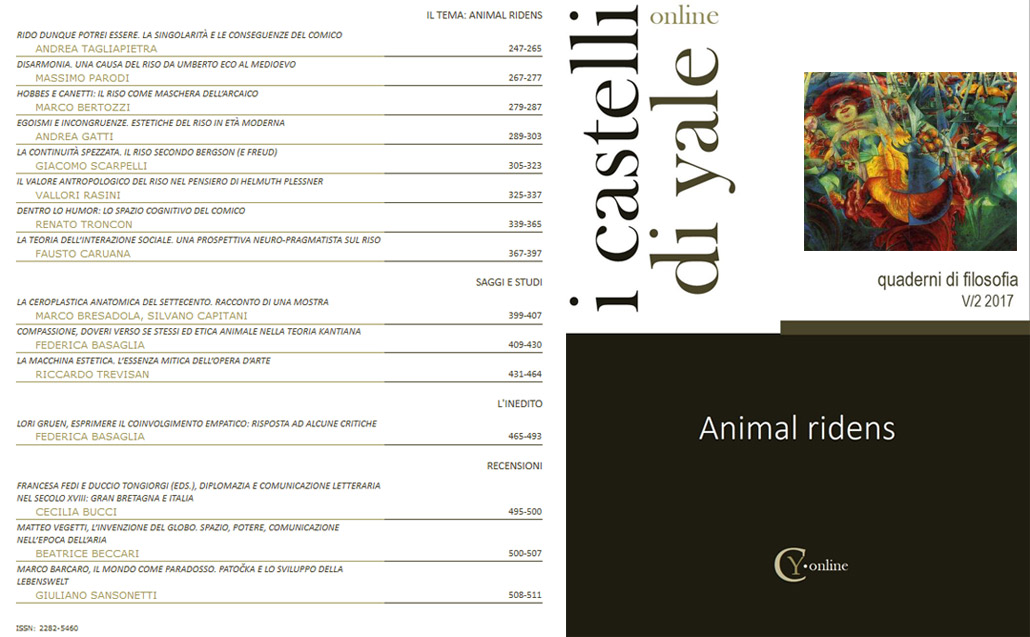<i>DISARMONIA. UNA CAUSA DEL RISO DA UMBERTO ECO AL MEDIOEVO</i>
DOI:
https://doi.org/10.15160/2282-5460/1540Parole chiave:
Umberto Eco, Middle Ages, Philosophical Laughter, Disharmony, ScepticismAbstract
In his novel Il nome della rosa, Umberto Eco seems to express ‒ also through the imagined words of the second book of Aristotle’s Poetics ‒ a hypothesis of philosophical laughter based on disharmony. As William of Baskerville realizes over the course of the story, the difficulty of believing in a solid relationship between knowledge, language, and reality makes it impossible to reconstruct the way in which things actually are: in response to the severity of the monastic attitude in considering the wordly reality and the truths of theology, a sceptic smile stands out. This point of view finds a confirmation even in times and authors different from those explicitly discussed in Eco's writingsDownloads
Pubblicato
12-01-2018
Fascicolo
Sezione
IL TEMA: ANIMAL RIDENS


